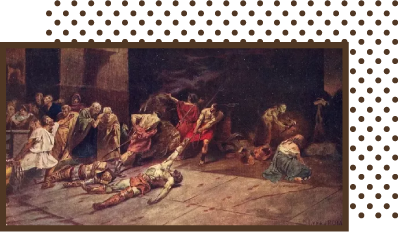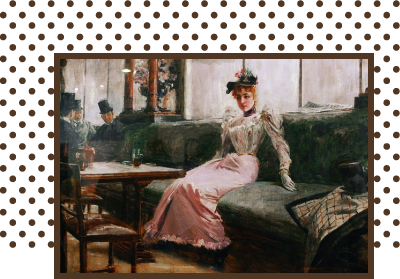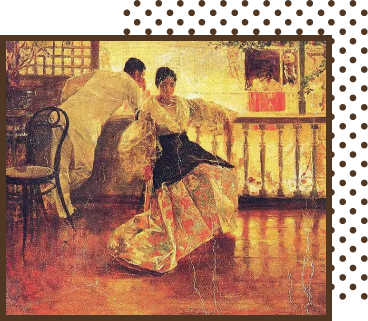
1857 - 1899
Juan Luna was a renowned visual artist and political activist during the Philippine Revolution in the late 1800s. As an impressionist painter, he gained international fame when his massive masterpiece "Spoliarium" won the top prize in the 1884 Madrid Exposition of Fine Arts.
Trained under European masters, Luna painted subjects highlighting literary and historical scenes--some with political commentary undertones. His representational works depicted classical balance, his human figures in theatrical poses.
1884

National Museum of Fine Arts, Manila
Luna's winning entry to the Madrid Exposition of Fine Arts, "Spoliarium" portrays the Roman Colosseum's dreary crypt, where fallen gladiators are thrown to die. The masterpiece is the country's largest painting.
1892

National Museum of Fine Arts, Manila
"The Parisian Life" depicts three of the Philippines' beloved heroic figures: Luna himself, Jose Rizal, and Ariston Bautista Lin, dressed in European garb and engaged in a conversation in a cafe in Paris. Most interestingly, a Parisian woman, along with a deserted cape and hat on a nearly empty sofa, graces its foreground.

One interpretation claims the lady as the mirror image of the Philippine archipelago.
1895

Rosalinda Orosa Collection
"Tampuhan" shows a Filipino couple sulking in their corner in the living room. The man, who is believed to be Bautista Lin, is looking outside a large Capiz shell window; the woman, Emilia Trinidad, seated, is staring at the floor.